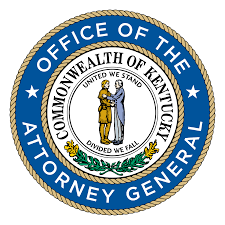 Beshear: ‘One Ring’ Scam Phone Call Can Lead to Billing Charges
Beshear: ‘One Ring’ Scam Phone Call Can Lead to Billing Charges
Scammer gets a percentage of expensive toll fees that are billed to the victim
FRANKFORT, Ky. (May 9, 2019) — Following a warning from the Federal Communications Commission (FCC), Attorney General Andy Beshear issued a scam alert to warn Kentuckians against returning “one ring” phone calls that he said can result in costly billing charges.
The FCC indicates both phone numbers in the U.S. and from international area codes that also use three digits are being used in the scam, which is being reported across the country.
The scam is carried out when a victim misses a phone call from an unknown number, calls the number back and is connected to a scammer that is collecting toll fees similar to those of dialing a 1-900 number.
“Kentuckians who return these phone calls could be subject to hefty international connection fees and per-minute charges they might not catch until their next phone bill,” said Beshear. “The best advice is to not return unknown phone calls and always review your phone bill for bogus charges.”
Beshear’s Scam Alerts partner, the Better Business Bureau serving Central & Eastern Kentucky (BBB), also issued a warning this week, adding that sometimes the calls may come in the middle of the night.
Heather Clary, director of communications for the BBB, said, “It is human nature to be annoyed enough, and curious enough, about the origin of a middle-of-the-night call that you might call it back to see who it is. However, in this case, that could be an expensive decision.”
Beshear said, scammers may also employ caller ID spoofing to make the calls appear to be from regions that also use three-digit codes, disguising that these are actually international calls. For example, “222” from Mauritania is one of the numbers being reported.
To help Kentuckians avoid “one ring” billing charges, Beshear, the FCC and the Better Business Bureau of Central and Eastern Kentucky offer these tips:
- Do not answer numbers you don’t recognize. Even if you hang up, scammers may mark your phone as a target.
- Do not call back numbers you don’t recognize, especially those appearing to be from another country.
- If you never make international calls, consider talking to your phone company about blocking outbound international calls to prevent accidental tolls.
- Always check your phone bill for charges you don’t recognize.
If you receive one of these calls, you can file a complaint with the FCC at www.fcc.gov/complaints, submit a report to BBB Scam Tracker at www.bbb.org/scamtracker and file a complaint with Beshear’s office.
Since taking office, Beshear has made protecting Kentucky families from scams one of the top priorities for his office.
Earlier this week, Attorney General Beshear and a coalition of 41 other attorneys general called on the FCC to take further actions to stop the rise of illegal scam calls.
Beshear encouraged the FCC to adopt rules laying out a strategic approach to fight the constant barrage of scam calls, many coming from criminals located out of the country, while also addressing the rampant use of spoofing in text messaging and alternative voice services.
Beshear said Americans received almost 18 billion scam calls in 2018 and overall scam calls increased in the U.S. by 57% from 2017 to 2018. The FCC reports that imposter scams cost consumers $488 million in 2018 alone.
To stay ahead of scammers Kentuckians can sign up for the Office of the Attorney General’s Scam Alerts. To enroll text the words KYOAG Scam to GOV311 (468311) or online at ag.ky.gov/scams and select text message or email alert.
